Join More Than 50,000+ Subscribers and get latest camera news and rumors
NEW CAMERA VIDEOS ON YOUTUBE
|
By admin, on June 11th, 2025
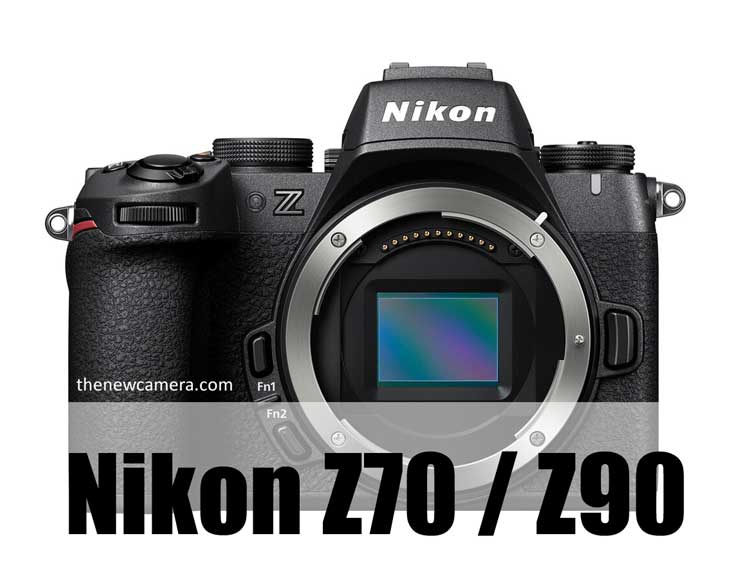
Chinese sources suggest that Nikon’s mysterious model is coming this year. So far, we know that the Nikon Z9 Mark II, Nikon ZR, Nikon Z7 III, and Nikon Z Video cameras are in the announcement pipeline. At the very same time, Nikon is also planning multiple cinema-related announcements. Based on Nikon’s announcement patterns and current rumors, several cameras are expected in late 2025 and early 2026. Take a look list of upcoming cameras
Nikon Upcoming Camera List
| Year |
Month |
Camera Model |
Status |
| 2025 |
Late 2025 |
Nikon ZR |
Rumored |
| 2025 |
Late 2025 |
Nikon Z video camera |
Rumored |
| 2026 |
Early 2026 |
Nikon Z9 II |
Rumored |
| 2025-26 |
Q4 2025 |
Nikon Z7 III |
Rumored |
| 2025-26 |
Q4 2025 – Q1 of 2026 |
Nikon Z30 II |
Rumored |
As in the table, you have seen all possible lists of cameras in BOLD, those that are expected to arrive. So, what else can we expect from Nikon? Nikon Z70 or Nikon Z90?
It, almost confirmed now, Nikon is gearing up for the professional ZR series camera, we can expect the introduction of ZR DX lineup of Camera in near future to offer a comprehensive video range to beginner content creators and cinematographers, but that all known to us we are not able to keep the ZR in “Mysterious Model” category.
Nikon ZR DX Range
Video Dedicated DX Mirroless Camera Announcement on its WAY? We already have the Sony ZV series lineup for beginner cinematographers and content creators. Canon recently announced their first V series camera, the Canon R50V., its logical to expect the same kind of move from Nikon. In the entire DX lineup, we have only one camera for content creators, the Nikon Z30, which badly needs an update if Nikon wants to keep a revenue share in entry entry-level content creator market. Apart from this, Nikon Z30, all the DX and FX lines of cameras are made for HYBRID SHOOTERS.
Nikon Z70 / Z90
None of the Nikon APS-C DX Mirrorless camera bodies have IBIS inside them. We do not have any pro model in the Nikon DX lineup after the Nikon D500, the Nikon D500 was announced back in January 2016 and discontinued in January 2022.
Over the past year, we have been getting strong hints about the development of the Nikon Z70 / Z90 camera, and one of the prototypes of the DX Z Mirrorless bodies is also being tested with Global shutter sensors. Be assured, Nikon will not put the Global shutter sensor-based cameras in the market; they will initially use partially or fully stacked CMOS sensors around a 26- 32MP Range paired up with the latest generation of Expeed image processors. Although we are waiting for more confirmation on the set of information we received a while ago.
So, these two are the possibilities under the hood of the Nikon Mysterious Model. What are you waiting for? Which specific model, let me know in the comments box
Stay tuned for more updates coming
Follow us on our social pages, FACEBOOK | TWITTER | INSTAGRAM, to get live Nikon News + Nikon Rumors 24X7.
source NR.com
Nikon ZR coming in Q4 of 2025
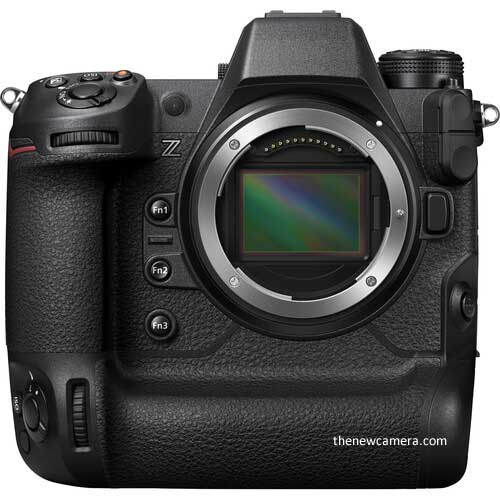
Nikon Z7 Mark III Leaked Specifications: Is the Rumored Camera Real?
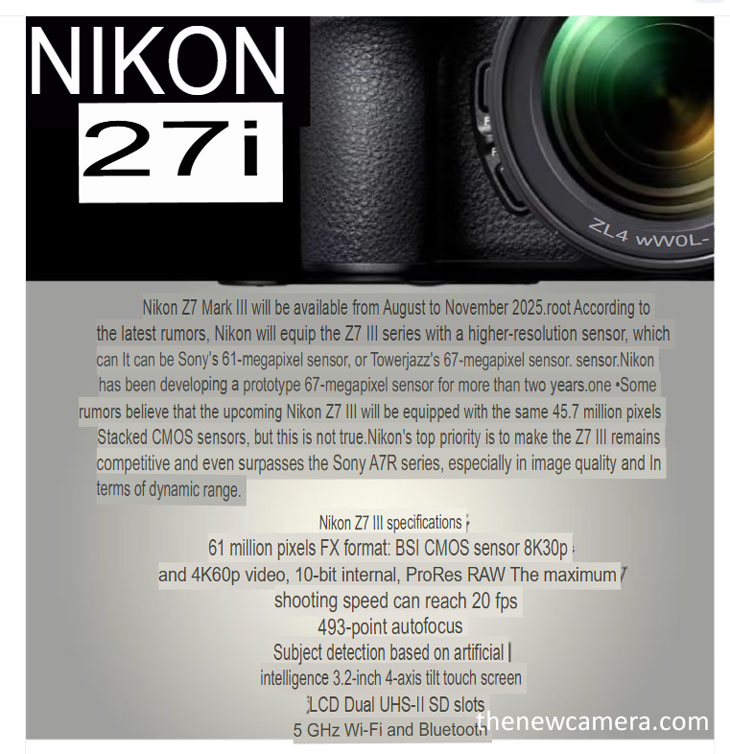
By admin, on June 11th, 2025
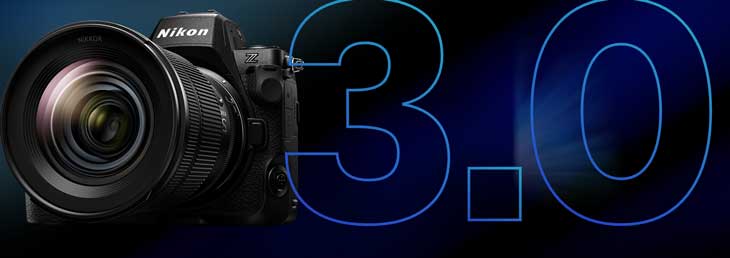
Nikon issued a major firmware update to the Nikon Z8 Camera, firmware 3.0, a free update packed with powerful new features and performance enhancements for our compact pro model. Designed to help you get even more out of your Z8, this update brings major upgrades across photography, video, and workflow.
1. World First – Pixel Shift + Focus Shift Technology now in Nikon Z8
The Z8 is now the world’s first camera to combine pixel shift with focus shift or pixel shift with auto exposure bracketing into your workflow. This unlocks both greater depth of field and resolution, perfect for commercial, fine art, and architectural photography. Using Nikon’s NX Studio software, you can merge pixel shift clusters. Then stack focus layers using your preferred software to create images with clarity and resolution up to 180 megapixels. Pixel shift also reduces moray, improves color accuracy, and lowers noise, giving you cleaner, more detailed results. With pixel shift and AE bracketing, the Z8 creates a pixel shift cluster at every exposure bracket, which you can then merge for high resolution and enhanced dynamic range.
2. Enhanced Autofocus: Precision and Speed
Autofocus gets a boost, too. Expanded custom wide area AF options can now be set completely at the edge of the frame and with smaller increments for more precise design of your AF point. To help you nail focus, there’s now a onetouch 400% magnification option, plus a builtin focus limiter that lets you define near and far focus ranges, speeding up autofocus and helping the camera lock on more efficiently.
3. Creative Control: Flexible Color Picture Profiles
Firmware 3.0 puts your creative intent front and center with new compatibility with flexible color picture controls. Import NP3 files created in NX Studio. Load them onto your Z8 and shoot with your custom looks applied in real time, capturing your vision exactly as you see it. For filmmakers shooting in an log, a more accurate view assist now displays enhanced highlights and contrast that more closely resembles our new Rec 709 L.
4. Workflow Upgrades: Voice Memos and Networking
For photojournalists, you can now record voice memos using an external mic for clear audio annotations even on the move. This update also makes the Z8 fully compatible with Nikon’s powerful advanced networking solution, NX Field. With NX Field, you can trigger and control up to 10 remote cameras via LAN. Adjust nearly every setting remotely and send files directly to an FTP server. Ideal for sports, news, and event coverage.
5. Download Nikon Z8 Firmware 3.0 Now
These updates redefine what’s possible with the Z8, whether you’re in the studio or out in the field. Download firmware 3.0 soon on Nikon’s website or through the Snapbridge app and start exploring what’s new.
Click here to explore more about Nikon Z8 3.0
Get you Nikon Z8 From Here – online B&H Store | Adorama | Amazon.com |
See more Nikon Z8 Comparison – – Panasonic S1R II vs Nikon Z8 | Nikon Z8 vs Leica SL3-S
Nikon added Shutter angle and Waveform Monitor in Nikon Z6 III and Nikon Z8
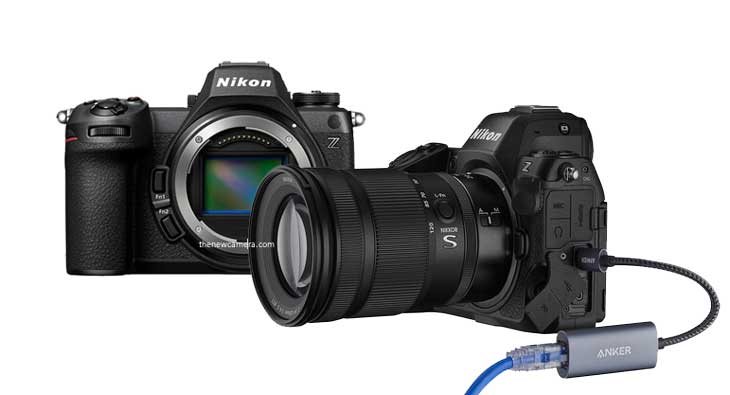
By admin, on June 8th, 2025
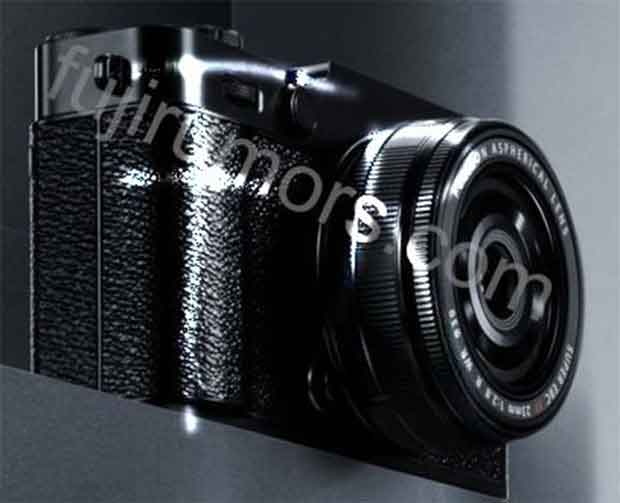
Finally, just before the official announcement of the Fuji XE5 mirrorless camera, we leaked images via the rumour mills. Today is June 8, and on June 12, the camera will become official. But even before that, let me remind you: We were the first website to publish the core specification of the upcoming Fuji XE5 camera. And as you have seen and witnessed, the sensor resolution and the IBIS system—all we mentioned months ago—came to be true.
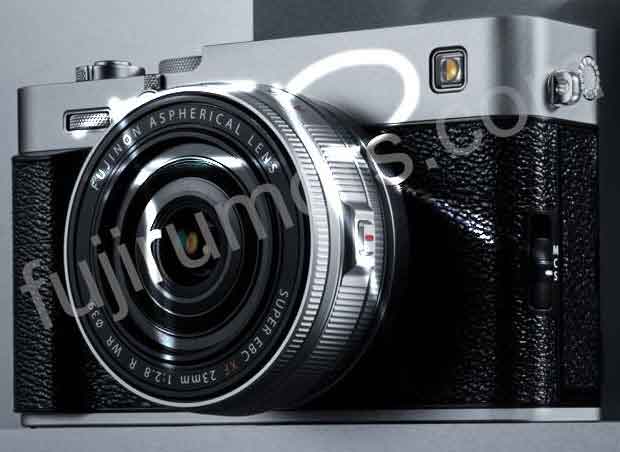
Fuji X-E5 specification
- 40MP APS-C X-Trans CMOS 5 HR Sensor
- 4K Video Recording at 60p, 6.2K at 30p (4:2:2 10-Bit)
- In-Body Image Stabilization (IBIS)
- 425-Point Intelligent Hybrid Autofocus System
- 3.69m-Dot OLED Electronic Viewfinder
- 3″ 1.84m-Dot Tilting Touchscreen LCD
- 20 fps Electronic Shutter, 15 fps Mechanical Shutter
- 160MP Pixel Shift Multi-Shot
- Bluetooth and Wi-Fi Connectivity
- ProRes & Blackmagic RAW via HDMI
+ MORE details by rumor mills
The return of the MCS switch like the X100VI
– A viewfinder selector similar to the X100VI, which we believe functions similarly to the one on the GFX100RF
– There is a small grip, unlike the flat front of the X-E4
– The strap hardware has returned to a traditional one instead of the big rectangular one on the X-E4
– The small wheel on the left side is probably the diopter adjustment dial
– The “X-E5” logo on the left side of the front is gone, replaced by a square AF assist light. Honestly, we welcome this decision
– Clearly the most beautiful camera in the XE series to date
Follow us for more updates and get LIVE RUMORS –> FACEBOOK | TWITTER | INSTAGRAM to get live news — > get live camera news + –> See More Fuji Rumors
source / image credit FUJI RUMORS.com
By admin, on June 6th, 2025
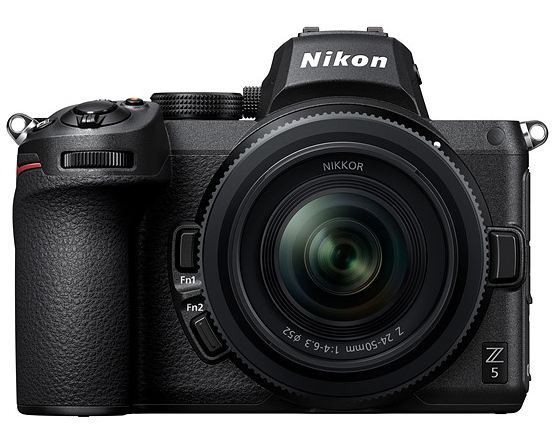
The Nikon Z5 mirrorless camera is available at $799 @B&H Store. The body is refurbished by Nikon USA itself, so it is like brand new and also comes with the warranty by the store.
So the Nikon Z5 camera is actually available at a price of an entry-level mirrorless camera or a compact camera. If you’re able to put a budget lens over it, like we have in Viltrox, the 35mm or the basic kit lens for a full-frame camera, it will help you to capture amazing pictures with a full-frame sensor.
But keep in mind Nikon Z5 is a first-generation Nikon full-frame mirrorless camera, so the autofocus tracking feature is not that great, means you are not able to track fast-moving subjects. Also, the autofocus lock speed is very fast and locks focus in no time.
Clicke here to explore the Nikon Z5 Deal at B&H Store
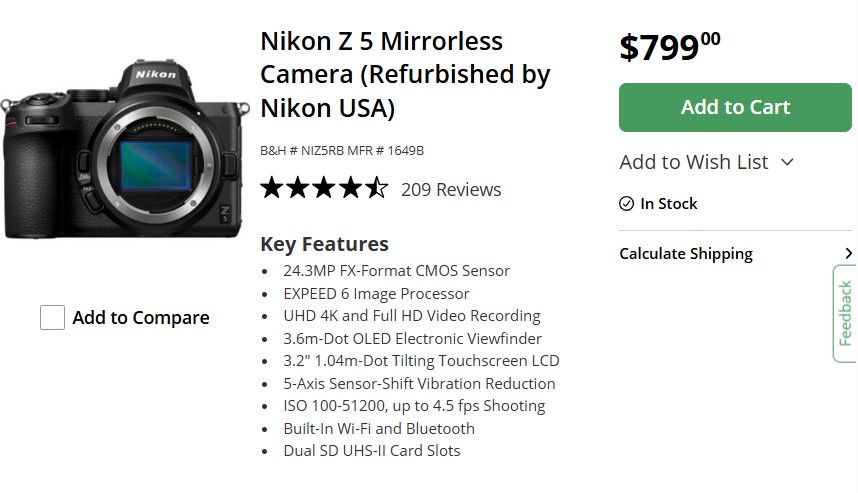
Pros and Cons of Nikon Z5
| Pros |
Cons |
| Affordable full-frame |
Slow 4.5fps burst rate |
| Excellent image quality |
Cropped 4K video |
| 5-axis stabilization |
Autofocus is less reliable in low light |
| Weather-sealed body |
|
| Dual SD card slots |
|
| Great ergonomics |
|
Nikon Z5: Who Should Buy and Who Should Not
| Who Should Buy |
Who Should Not Buy |
| Beginner full-frame photographers |
Action/sports photographers needing high burst rates |
| Budget-conscious enthusiasts |
Videographers requiring uncropped 4K video |
| Landscape/portrait shooters |
Low-light autofocus-dependent users |
| Those wanting weather-sealed gear |
Professionals needing advanced features |
Follow us for more updates and get LIVE RUMORS –> FACEBOOK | TWITTER | INSTAGRAM to get live news — > get live camera news + –> See More+ Explore more B&H Deals and Camera Deals USA
By admin, on June 5th, 2025
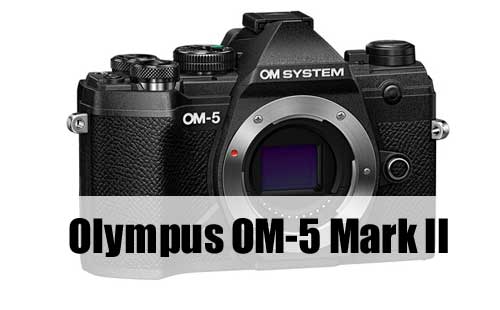
According to the latest rumors from the rumor mill, the Olympus OM-5 Mark II announcement is expected on June 17, 2025. The camera will feature the same sensor as we have seen in the OM-1 Mark II camera, the 20 MP Stacked M4/3 format sensor. If the rumored information is true, then the entire OM-5 Series will surely experience a Major update in the sensor technology, aligning it closely with OM System’s flagship model.
A nice bump in speed and image quality compared to the original OM-5 if the rumored information is true. A few subtle tweaks to the body design is also coming alongside the new sensor, though nobody’s shown us clear details yet (we are waiting for the leaked images/specs to confirm this). If we talk about the EXACT set of information from the sources of the rumor mill, they have mentioned “stacked sensor” without saying exactly which one, so. What we have concluded is that if a stacked CMOS sensor is used, then for sure Oly will use the 20MP stacked from the flagship model.
The combination of “conventional 20MP sensor + TruePic X” seems possible. However, rather than using the old sensor (which has been in use since 2016), it may be cheaper for the company to standardize on the stacked sensor.
Either way, we’ll likely find out on June 17th, Stay tuned more updates coming
Follow us for more updates and get LIVE RUMORS –> FACEBOOK | TWITTER | INSTAGRAM to get live news — > get live camera news + –> See More+ Olympus Rumors 24X7
Credit / courtesy of 43Rumors—
By admin, on June 1st, 2025
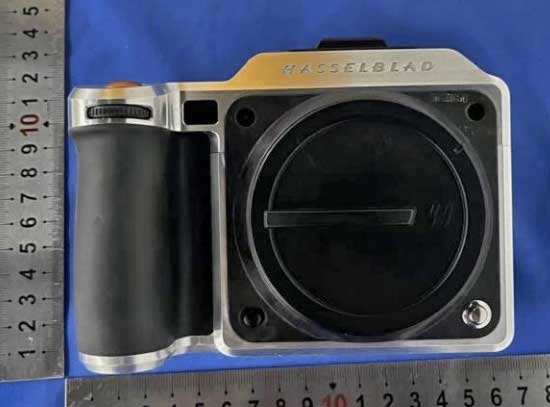
Hasselblad X2D Mark II images and major core specifications surface today. Since in our previous post we have clearly mentioned that the camera maker has 180 days of time to announce the camera, and since they have failed to do so, the FCC ID, according to their rules, has publicly released the major core specifications and images of the camera.
Exclusive insight from the registration details
The Hasselblad X2D II is Hasselblad’s next generation mirrorless medium format digital camera with a large 100-megapixel CMOS sensor
that boasts 16-bit colour depth and a dynamic range of 15 stops. The camera features a 5-axis 8-stop in-body image stabilization (IBIS) and face
detection. Hasselblad Natural Colour Solution (HNCS) technology is integrated into the camera’s system, delivering superb, true-to-life tones that
match what the human eye sees. The HB722 offers more storage with a built-in 1TB SSD and users can expand the capacity further with a
CFexpress Card Type B. With access to a vast range of high-quality lenses including XCD, HC, HCD, XPan, and V System, the creative possibilities with the HB722 are
endless.
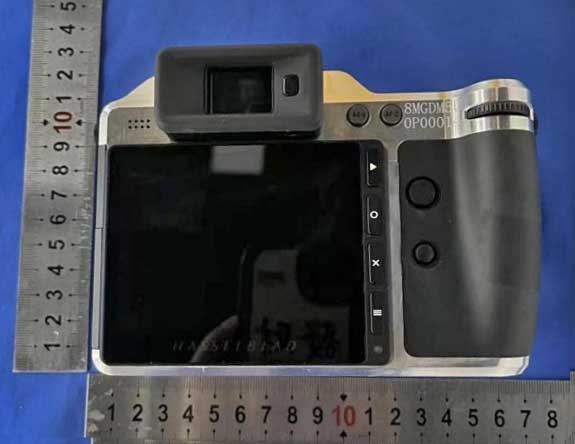
So now we have the official core specifications and real images of the camera. And now its up to hasselblad when they want to do an formal announcement for X2D II
Hasselblad X2D II Full Specification
- 100-Megapixel CMOS Sensor: A 100MP medium format sensor with 16-bit color depth and 15 stops of dynamic range for exceptional image quality.
- 8-Stop 5-Axis IBIS: Advanced in-body image stabilization for sharper handheld shots, even in low-light conditions.
- LiDAR Autofocus System: Cutting-edge LiDAR technology for fast and precise focusing, ideal for challenging lighting scenarios.
- Hasselblad Natural Colour Solution (HNCS): Delivers true-to-life colors that align with human vision.
- 1TB Internal SSD: Built-in storage with support for CFexpress Type B cards for high-speed, high-capacity workflows.
- Lens Compatibility: Supports XCD, HC, HCD, XPan, and V System lenses for versatile shooting options.
- Connectivity: Bluetooth and WiFi (2.4GHz) for seamless wireless integration with modern devices.
- Display: Top LCD screen for quick access to shooting parameters, enhancing the user experience.
- Body Design: Black aluminum alloy top plate, maintaining Hasselblad’s signature minimalist aesthetic.
What’s NEW inside the Hasselblad X2D II
The Hasselblad X2D Mark II features a 100MP new BSI CMOS Medium Format sensor, upgraded LiDAR autofocus, and enhanced sensor shift image stabilization, 8-stop IBIS, The camera is actually made for photographers. While video capabilities remain unconfirmed, earlier leaked information suggests that X2D II may include 4K recording,
Follow TheNewCamera.com for the latest updates, reviews, and camera rumors. Join our community on X for real-time news! Also Follow us on our social pages FACEBOOK | INSTAGRAM, If you have time –>see more+ Hasselblad rumors 24X7
Support us – Use our affiliate link Amazon.com | B&H Store | Adorama.com for the next purchase u make – it helps us 🙂
Disclaimer: This post contains affiliate links. As an Amazon Associate, we earn from qualifying purchases, which helps keep TheNewCamera.com running without additional cost to you.
sources HottoFLY Twitter | https://www.fccinsights.com/victor-hasselblad-ab/2AEFA-HB7220924
By admin, on May 30th, 2025
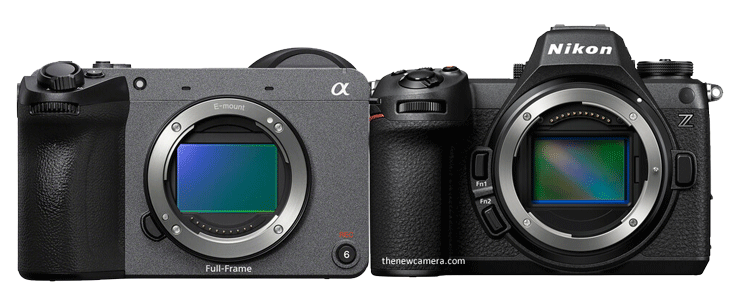
Sony FX2 versus the Nikon Z6 Mark III camera, let’s explore the differences between the two point by point
The Nikon Z6 Mark III camera is slightly larger, with a photography-friendly body and controls. The Sony FX2 does have a deep hand grip, but it has a somewhat boxy design. The thing that makes a big difference between the two, specifically in the design part, is that Sony is made for cinematography purposes and carries a lot of tripod threads all over the body to mount it perfectly in cinema rigs. The other advantage we have with the Sony FX2 camera is the moving viewfinder.
Nikon Z6 III and the Sony FX2 — both of them support dual card slots, one dedicated for CFexpress and one SD card slot. The Nikon Z6 Mark III monitor is slightly larger and of higher resolution, so users may experience better LCD quality with the Z6 Mark III camera. At the very same time, the electronic viewfinder is also a 5.76 million-dot unit compared to a 3.6 million-dot electronic viewfinder in Sony, but yeah, we are getting better display units in the Nikon Z6 Mark III.
The wireless functionality of the two is almost the same, but Nikon does have GPS support via smartphone to enable geotagging functionality for travel purposes, documentary work, or maybe for photojournalism purposes. The FX Mark 2 camera misses out. Although the humidity tolerance and the weatherproof criteria of both cameras match each other, so we literally do have almost the same build quality in both cameras.
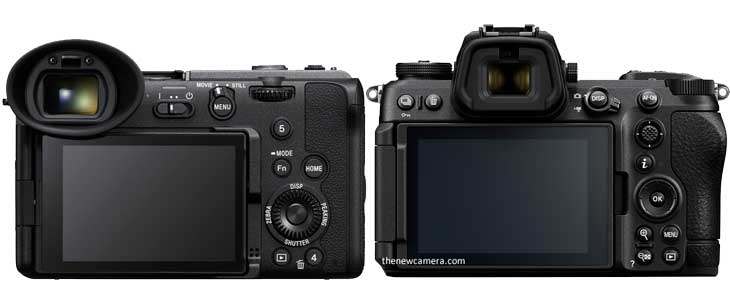
Design Comparison
| Feature |
Sony FX2 |
Nikon Z6 III |
| Lens Mount |
Sony E |
Nikon Z |
| Material of Construction |
Magnesium Alloy |
Magnesium Alloy |
| Dimensions (W x H x D) |
5.1 x 4.1 x 3.1″ / 129.7 x 103.7 x 77.8 mm |
5.5 x 4 x 2.9″ / 138.5 x 101.5 x 74 mm |
| Weight |
1.3 lb / 594 g (Body Only), 1.5 lb / 679 g (With Battery, Recording Media) |
23.6 oz / 670 g (Body Only) |
| Shoe Mount |
1x Intelligent Hot Shoe |
1x Hot Shoe |
| Tripod Mounting Thread |
2x 1/4″-20 Female (Bottom) |
1x 1/4″-20 Female (Bottom) |
| Accessory Mounting Thread |
3x 1/4″-20 on Camera Body |
Not specified |
| Operating Conditions |
32 to 104°F / 0 to 40°C |
32 to 104°F / 0 to 40°C up to 85% Humidity |
| Media/Memory Card Slot |
Slot 1: CFexpress Type A / SD (UHS-II)
Slot 2: SD/SDHC/SDXC (UHS-II) |
Slot 1: CFexpress Type B / XQD
Slot 2: SD/SDHC/SDXC (UHS-II) |
| Wireless |
2.4 GHz Bluetooth 5.0, 2.4 / 5 GHz Wi-Fi (802.11a/b/g/n/ac) |
2.4 / 5 GHz Wi-Fi 5 (802.11ac), Bluetooth 5.0 |
| Mobile App Compatible |
Yes: Android & iOS (Sony |
Creators’ App |
| Global Positioning |
No |
GPS (via Connected Smartphone) |
| Monitor |
3″ Tilting Touchscreen LCD, 1,036,800 Dot |
3.2″ Articulating Touchscreen LCD, 2,100,000 Dot |
| Viewfinder |
Electronic (OLED), 3,686,400 Dot / Titling EVF |
Electronic, 5,760,000 Dot, 0.5″ |
Best Camera for Photographers
Sony FX2 camera offers higher resolution at 33 megapixels, but at the very same time, the Nikon Z6 Mark 3 camera offers 24.5 megapixel resolution, which is of course limited. But if you talk about sensor architecture, then the Nikon Z6 Mark 3 camera is using a partially stacked CMOS sensor.
Video Recording: Nikon Z6 III Excels
Of course, the Sony FX2 camera is able to create highly detailed 4K 30fps footage from a 7K oversampled file. At the very same time, when you are recording videos at 4K 60 frames per second or 4K 120 frames per second with the Nikon Z6 Mark 3 camera—and of course, to be noted—4K 120 FPS is not possible with the Sony FX2 despite being in a higher price range. Other than that, even when you are trying to record 4K @ 60 frames per second, at that time you have to face a 1.5x crop in the Sony FX2. So with the FX2, we have limitations attached in the higher frame rate, and 4K 120 is not possible.
Continuous Shooting Speed Comparison
The same advantage we also get in the continuous shooting speed of the camera, where we are able to get up to 20 FPS RAW, and up to 60 frames per second in full resolution, and up to 120 frames per second in the DX crop mode. Thankfully, the Sony FX2 camera is using a mechanical shutter, but despite that, the continuous shooting speed of the camera remains limited to 11 frames per second.
Autofocus: Sony FX2’s Precision
When you dive into autofocus performance, each system really brings something different to the table. Sony’s FX2 boasts a whopping 759 phase-detection points (compared with Nikon’s 299 “hybrid” points), which means it can lock onto—and keep track of—moving subjects across with Sony’s famous AI AF. That’s a huge advantage when you’re shooting fast-paced street scenes or busy event coverage.
Nikon Z6 III’s Low-Light Autofocus
On the other hand, Nikon’s autofocus shines in low-light situations. With a sensitivity down to –10 EV (versus Sony’s 4 EV), the Z6 III can find and focus on subjects in near-darkness—perfect for late-night cityscapes, dimly lit weddings, or cozy indoor gatherings.
Autofocus Tracking: Nikon Closing the Gap
Recent reviews peg the Z6 III’s subject recognition and tracking as nearly on par with Sony’s vaunted system, so you’re not really “giving up” much by choosing Nikon—especially if you need that extra push in challenging light. Still, many pros continue to call Sony the gold standard for sheer reliability, so it really comes down to what kind of shooting you do most often.
Image Stabilization: Nikon’s Edge
Sensor-shift image stabilization of the Nikon Z6 Mark 3 is more helpful, since you can link your autofocus point with the VR system of the camera, and you will be getting a true 7.5 stops of stabilization all the time, even if you are focusing in the corner of the frame. Sony’s Active Image Stabilization is highly effective in video mode, but when you are talking about stills, it’s the traditional-style IBIS system we are getting.
Why Choose Nikon Z6 III for Pros
Nikon Z6 Mark III camera, due to its partially stacked CMOS sensor and Expeed 7 image processor, the autofocus calculation is being done at the rate of 120 frames per second in-camera. So the autofocus and the auto exposure refresh rate is actually 120 FPS. And due to the introduction of a new artificially intelligent autofocus algorithm inside the camera, the overall photographic experience is now elevated to the next level.
So if you are a professional photographer, then the Nikon Z6 Mark 3 will be a perfect choice for your requirements.
Photographic Features Compared
| Feature |
Sony FX2 |
Nikon Z6 III |
| Sensor Resolution |
Actual: 34.1 MP, Effective: 33 MP |
Actual: 26.79 MP, Effective: 24.5 MP (6048 x 4032) |
| Image Sensor |
35.9 x 23.9 mm (Full-Frame) CMOS |
35.9 x 23.9 mm (Full-Frame) Partially Stacked CMOS |
| Image Stabilization |
Sensor-Shift, 5-Axis, Active IS |
Sensor-Shift, 5-Axis, AF points can be linked to VR |
| ISO Sensitivity |
Native 100-51,200 (50-204,800 Extended) |
Photo: Native 100-64,000 (50-204,800 Extended) |
| Shutter Type |
Mechanical Focal Plane and Electronic Rolling Shutter |
Mechanical Focal Plane and Electronic Rolling Shutter |
| Shutter Speed |
1/8000 to 30 Seconds (Photo) |
1/8000 to 15 Minutes (Mechanical), 1/16000 to 15 Minutes (Electronic) |
| Continuous Shooting |
Not specified in the provided data (10 fps per web sources) |
Up to 20 fps at Maximum Resolution |
| Autofocus Points |
Photo: Phase Detection: 759 |
Photo, Video: Contrast Detection, Phase Detection: 299 |
| Autofocus Sensitivity |
4 to +20 EV |
-10 to +18 EV |
| White Balance |
2500 to 9900K |
2500 to 10,000K, Presets: Auto, Cloudy, Color Temperature, Direct Sunlight, Flash, Fluorescent, Incandescent, Shade |
| Image File Format |
Not specified (JPEG, Raw per web sources) |
HEIF, JPEG, Raw |
| Bit Depth |
Not specified (14-bit per web sources) |
14-Bit |
Best Camera for Video
When it comes to video, the Z6 III feels like a powerhouse that’s ready to stretch your creativity. Imagine being able to capture in gorgeous ProRes RAW—right inside the camera—at up to 6K/60p. With the help of the stacked CMOS sensor, the camera can record 6K 60fps videos. Despite being a consumer hybrid mirrorless camera, the Nikon Z6 Mark III is able to deliver 6K resolution, that is really a big surprise.
That means you’ve got room to push and pull your colors, tweak contrast, and hold onto every bit of shadow and highlight detail without worrying about external recorders or cables.
Nikon Z6 Mark III Slow-Motion Capabilities
And if you need silky-smooth slow-mo or a little extra resolution, you can jump into uncropped 4K/120p or even 1080p/240p modes. While shooting 4K 120 frames per second, you have to face a 1.5x DX crop, and when you are shooting 4K @ 60 frames per second, there is a negligible amount of crop, which remains unnoticeable.
Sony FX2 Video Features
Sony’s FX2 isn’t slouching, though. It delivers clean, 10-bit H.264/H.265 internally and will give you oversampled 4K/30p for sharp, detailed footage. If you really need that ProRes RAW goodness, you can use an external recorder via HDMI—but that means more gear hanging off your rig. And when you want to push the frame rate higher in 4K—meaning if you want to record your 4K videos at 60 frames per second—you have to face a 1.5x crop, and there is no 120 frames per second option available in the Sony FX2 while recording 4K videos.
Sony FX2 Live-Streaming Advantages
Where Sony shines is in its live-streaming chops: built-in RTMP/RTMPS and SRT support make it a dream camera for one-person streaming setups, whereas the Z6 III leaves you hunting for a separate encoder. Both cameras give you flexible picture profiles—N-Log on Nikon holds up beautifully alongside Sony’s S-Log 3 and S-Cinetone—but in professional circles, S-Log and Cinetone have built a bit more of a buzz.
Audio and Rolling Shutter Comparison
Don’t forget audio: both record in 24-bit LPCM, but Sony’s extra channels give you more mics or ambient tracks to play with. And if rolling shutter is a worry, Nikon’s stacked sensor really pulls ahead—its readout is faster, so you’ll see far less “jello” when you whip the camera side-to-side at 4K/60p or 120p.
Nikon Z6 III vs. Sony FX2: Which to Choose?
In short, if you’re a solo shooter who loves to color-grade, chase cinematic slow-mo, and keep your rig light, the Z6 III’s internal RAW and high-speed modes deliver. If you’re streaming live, mixing multiple audio sources, or don’t mind an external recorder for 16-bit RAW, the FX2’s built-in streaming and flexible codecs have you covered.
Video Comparison
| Feature |
Sony FX2 |
Nikon Z6 III |
| RAW |
16 BIT via HDMI |
12 Bit internally |
| MAX RES. |
4K 60p |
6K 60p N-RAW, 6K 30p ProRes RAW |
| Internal Recording Modes |
H.264/H.265 8/10-Bit:
UHD 4K (3840 x 2160) at 23.98/25/29.97/50/59.94 fps
DCI 4K (4096 x 2160) at 23.98/24/25/29.97/50/59.94 fps
|
ProRes RAW/ProRes RAW HQ/Raw: 6048 x 3404 at 23.98/25/29.97/50/59.94 fps
4032 x 2268 at 23.98/25/29.97/50/59.94 fps 3984 x 2240 at 23.98/25/29.97/50/59.94/100/120 fps
UHD 4K (3840 x 2160) at 23.98/25/29.97/50/59.94/100/120 fps
|
| Format and codes |
16 Bit RAW, 10-Bit 4:2:2 XAVC S-I |
12 Bit RAW, |
| 4k 60 FPS |
Yes, 1.5X Crop |
Yes, No crop at 4k 60FPS |
| 4K 120 FPS |
No |
Yes, 1.5X Crop |
| External Recording Modes |
4:2:2 8/10-Bit via HDMI:
DCI 4K (4096 x 2160)
UHD 4K (3840 x 2160)
HD (1920 x 1080)
Raw 16-Bit: 4672 x 2628 |
HDMI: UHD 4K (3840 x 2160) |
Dual Native ISO
|
Dual Base 800/4000 |
Dual Native ISO 800 |
| Built-in Fan |
Yes |
No |
| Video IS |
Very effective / Active IS + Gyro |
Mechanical IBIS + EVR |
| Fast-/Slow-Motion Support |
Yes |
Slow-Motion Only |
| Gamma Curve |
HDR-HLG, Rec709, S Cinetone, Sony S-Log 3, Standard |
HDR-HLG, Nikon N-Log |
| Anomorphic Lenses support |
Yes |
No |
| Audio Recording |
2/4-Channel 24-Bit 48 kHz LPCM
2-Channel 16-Bit 48 kHz LPCM |
16-Bit 48 kHz AAC Audio
2-Channel 24-Bit 48 kHz LPCM Audio |
| IP Streaming |
RTMP, RTMPS, SRT: 1280 x 720 to 3840 x 2160 at 25p, 29.97p, 50p, 59.94p |
No |
Buy Nikon Z6 Mark III from Amazon.com | B&H Camera store
Buy Sony FX2 From B&H Store
also see
Which one is the Best Camera for Recording Video – Panasonic Lumix S1 II vs. Nikon Z6 III?
Best Lenses for Nikon Z6 III
|
KEEP THIS BLOG ALIVE - Support New Camera Buy Canon Lenses, Buy Music CD or Digital Camera at amazon it helps this site, and you do not pay anything extra, it is just a way to help support this site.

|



















